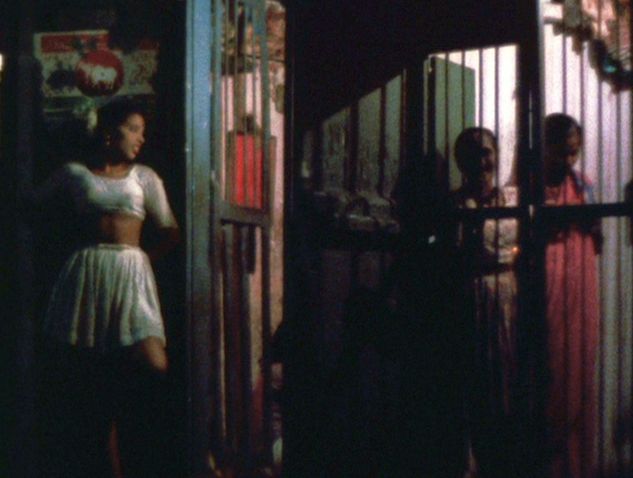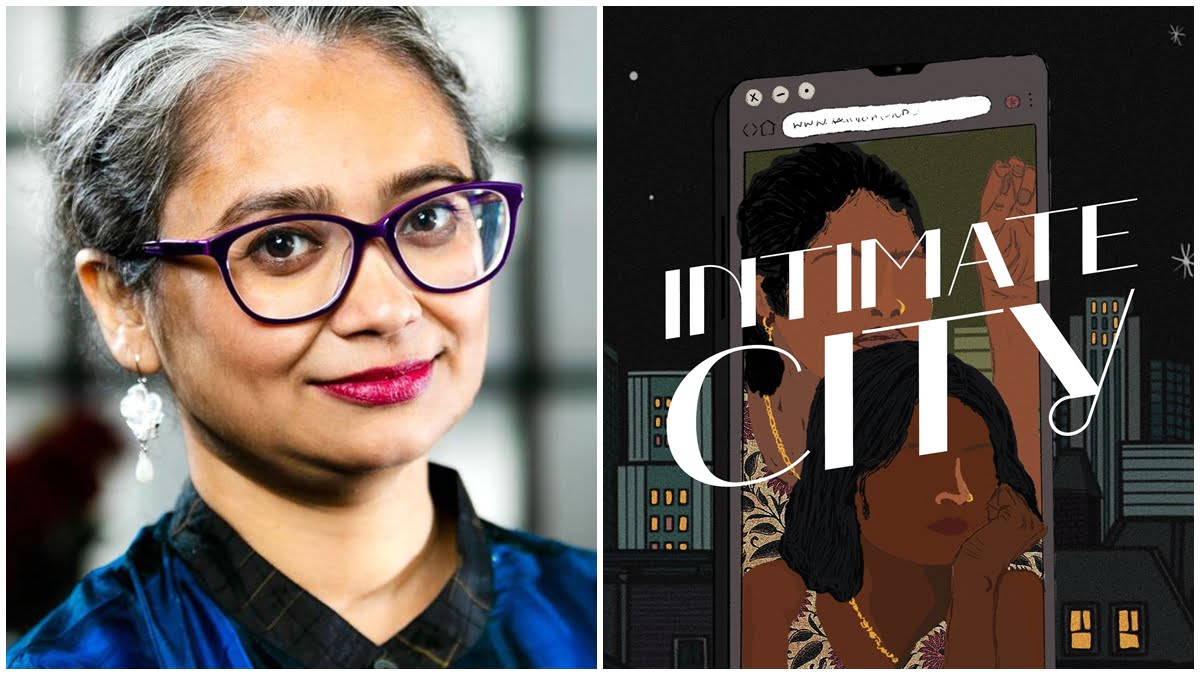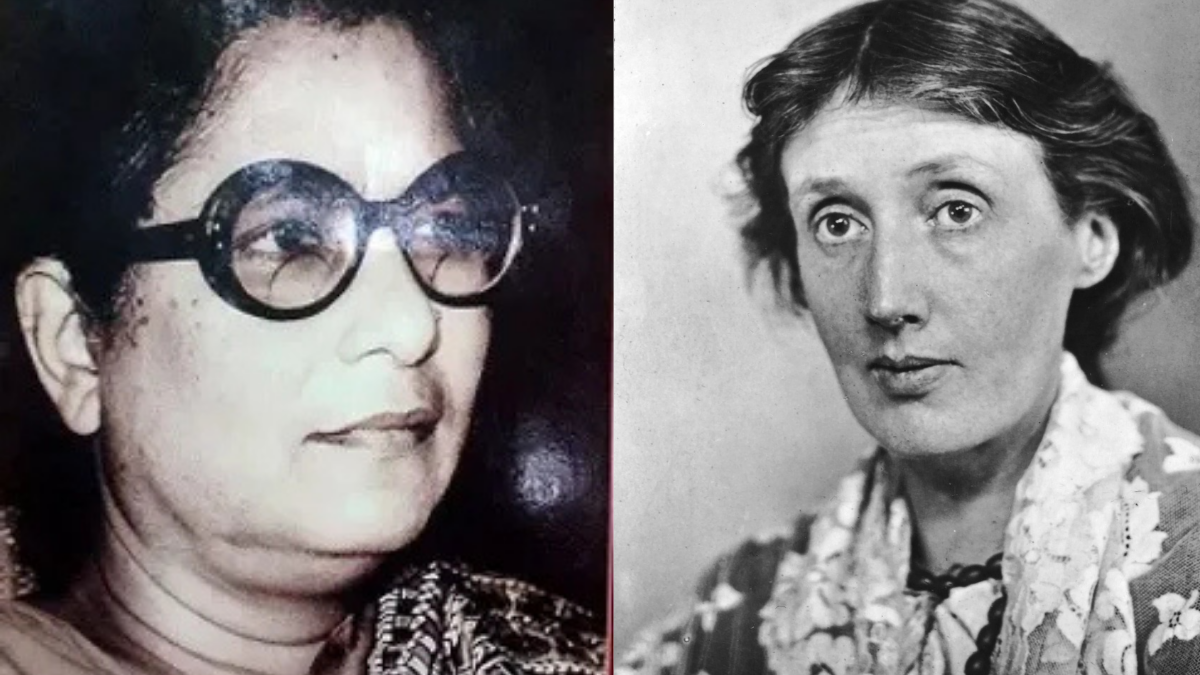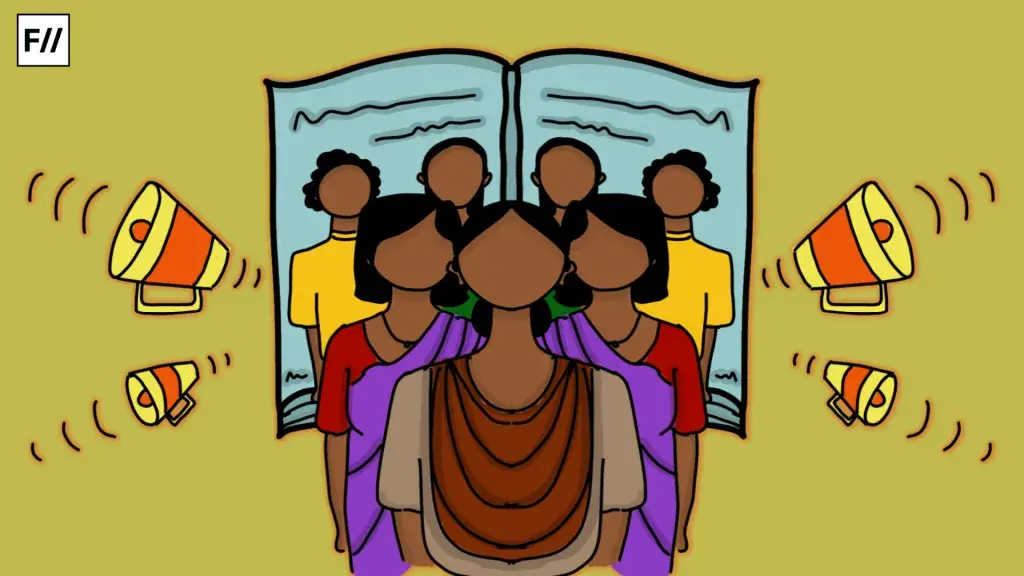In the post #MeToo era, choice, consent and agency are central to the feminist discourse. It has become quintessential to expand their meaning in order to account for the diverse experiences of women. Manjima Bhattacharjya’s Intimate City is crucial a book in this regard. She broadens these ideas by examining them in the context of sex work. Just as she broke new path with Mannequin: Working Women in India’s Glamour Industry – where she reformed the meaning of bodily autonomy, in Intimate City, she provides a new language to understand sex work.
“In feminist movements around the world, sex work is increasingly seen as labour, which is a big step forward in how we think about sex work,” Bhattacharjya tells me. A feminist theorist and activist, Bhattacharjya has been an insider of the Indian women’s movement for over two decades, playing a critical role in pushing the feminist envelope. With a PhD in sociology, Bhattacharjya specialises in gender and sexuality, and labour and the body. “Feminist groups are involved as allies with sex workers’ groups, and sex worker groups are part of many other battles for women’s rights in general,” she says. “But it is all works-in-progress, and self-reflection is part of this expansion of feminism and making it more intersectional and relevant to every single person.”
Also read: Book Review | Mapping Dalit Feminism: Towards an Intersectional Standpoint By Anandita Pan
Shifting the narrative
Around the world, sex workers continue to face judgment and stigma. They are negatively stereotyped in popular culture: either as vamps or repentant women seeking to atone for their sins. There is no nuance. On the other hand, India’s laws criminalise sex workers and deny them rights – leaving them vulnerable to violence and harassment. In this backdrop, Intimate City offers a rare glimpse into the lives of sex workers. It contextualises a complex debate and unearths voices never heard before. From tracing the history of sexuality in Mumbai, to exploring the troubled connection between caste, sexuality and labour, Intimate City is wide-ranging in its ambit. Yet, the personal is political, and it is the intimate account of Mumbai escorts’ work lives that makes us question our own perspectives and confront our prejudices about sex work.
Intimate City offers a rare glimpse into the lives of sex workers. It contextualises a complex debate and unearths voices never heard before. From tracing the history of sexuality in Mumbai, to exploring the troubled connection between caste, sexuality and labour, Intimate City is wide-ranging in its ambit.
“I feel like I touched the tip of the iceberg,” Bhattacharjya exclaims. “Doing research on sex work has many challenges. The biggest is of course the access to sex workers and clients, which is so difficult because of what I call the three axes along which sex work is marginalized – the perceived illegality, immorality, and informality of sexual labour. Then there are perceived and real dangers to researchers themselves, who may feel unsafe or uncomfortable doing field work because of their own biases or perceptions.” Using the internet or the phone as a medium of conversation may be helpful, she proffers, “because people might feel safer opening up about these issues, can remain anonymous to some extent so their fears of being outed or judged (which can lead to their being harmed) are reduced and they feel more in control of the narrative.”
The interviews of escorts and clients in Intimate City provide a unique look into the power dynamics of transacted sexual encounters online and offline. What really surprised me as I read it, was how the interviewed clients cared very much about the consent of the escort/sex worker (to enter into the transaction). Not all clients have male hostility, it would seem. And not all clients are male! Bhattacharjya also interviews a male sex worker for Intimate City. But it’s the interview with female escorts that shatter the narrow perceptions of sex work most. Why they do what they do doesn’t always align with mainstream society’s trope of trafficking. Some claim to do it for money, some others for pleasure. Overall, they claim to have chosen to do sex work of their own volition.
On the flip side, Intimate City does not shy away from portraying the risk of violence that sex workers encounter at the workplace. We see how escorts are vulnerable because they operate alone and do not have a collective to stand with them. I ask Bhattacharjya if decriminalising or legalising sex work can change this. “Yes I do think decriminalisation is important,” she says. “It may not reduce the risk of violence, but it will enable a sex worker to go to the police and access systems of redress without the fear of being harassed and criminalised herself or himself or themselves. This is different from legalisation, which I doubt can help sex workers, because it involves coming under more surveillance by the state. What could help is ending the impunity with which violence against sex workers in society takes place, whether it is by clients or police or whatever.”
On the question of rights and protection, she asserts: “We need to think more about how workers in general can access their rights or be protected from harm. If we see sex work as labour within the informal sector, then their access to rights will depend on the situation of the sector overall – how rights are afforded in the informal sector in general. If the wider informal sector remains vulnerable then so will all those who fall within it.”
Also read: Book Review: The Good Girls By Sonia Faleiro
India’s complex history of sexuality
To understand the moral panic that straddles sexual commerce in contemporary times, Bhattacharjya also explores India’s convoluted history of sexuality. In the Intimate City, she mentions how courtesans were reduced from the status of high net-worth individuals to stigmatised common prostitutes by the British. I ask her if colonial attitudes still plague the way we see sexual commerce – are we trying to “reform” sex workers thanks to our Victorian obsession with feminine dignity?
“From where I stand, even in pre-colonial India it is not like women could freely experience or assert their sexuality,” she replies. “Clear cut systems existed to divide women’s labour into sexual and non-sexual labour, as feminist scholar Sharmila Rege’s excellent work has shown, and it was all caste-based categorization including the existence of subcastes that were marked for sexual labour. So whether it was other ruler or colonial rule, I don’t know that any period existed in which women’s sexuality was freer or could operate outside existing strict social systems.”
Courtesans had a complicated relationship with the nationalist movement, Bhattacharjya explains. “It is well known how women courtesans mobilised to participate in the freedom struggle and came together to give large amounts of funds for the movement. Many a time they were rejected by nationalist leaders, including Gandhi (Ajay Skaria has done work on this). It was also brought out nicely in a book I read recently, An Educated Woman in Prostitution, a memoir by Manada Devi. You can’t blame that on colonialism. Inherently, there has been a stigma and ambivalence attached to sexual labour.” What colonialism did was blunt all the nuances, she says, “and iron over the detailed stratification that existed, and use the “women’s question” as an instrument to establish moral dominance, manage multiple interests and essentially, govern. They created the official red light area as an administrative unit and set up the legal architecture in the country, in which Victorian morality was embedded.”

Red light areas are taboo in Indian society even today, as is the word “prostitute” – which continues to be used as an insult. Within Indian society’s binary conception of dignity, women are expected to live taintless lives and be revered as a sacred Madonna, or they’d be slut-shamed and scorned as a whore. It’s common knowledge that women are not expected to have sexual lives outside marriage. Not to mention, marital rape is not even rape here. In such a society that’s hypocritical when it comes to sex and sexuality – how is it possible for us to have a real reckoning about consent, I ask Bhattacharjya.
“Consent is a great entry point for talking about bodily autonomy. But it is hard to understand how to articulate consent if the language is not there around you, and there is little precedence or modelling of how you should express it,” she replies. “In the absence of sex education in schools, and taboos around discussing sexuality, how can we have these conversations? Instead, people rely on “reading” signs and cues! Again the internet I find is a place where consent is clearer because people have to say it, articulate it, which is good. So we need to explore how we can express consent clearly, while acknowledging that it’s not just about yes or no, but also many grey areas in between. We need to understand that consent is not one-time only but something that you need to continuously have respect for in a relationship. We need to talk about how everybody has the ability to consent to something or not, whether at 16 or 70. Agents of Ishq has a marvellous lavani on consent that everyone should watch, to start with!”
Asking reflexive questions
All through Intimate City, Bhattacharjya reflects on contentious subjects. In her notes on the margins, she even asks of feminists: “Do we value them as sex workers, or as sex worker’s collectives?” This question hits the nail on the head, I tell her. While many may be willing to ally with sex worker’s collectives when they demand political rights, they may not be so willing to accord individual agency to the sex worker, or see sex work as choice. Why do you think this is so, I ask, why do we (as feminists) moralise for others? In the post #MeToo era, shouldn’t we be listening to one another with respect?
“There are several streams of thought within feminism, so it is important to not club them together,” Bhattacharjya responds. “Many feminists can be wary of attributing it to “choice” because there are usually very limited choices in women’s lives, especially those from marginalized socio-economic backgrounds. So it is not meaningful to talk in these terms. Same for individual agency. Because in both cases, the wider context is so important and determines people’s decision-making. At the same time, there continues to be a “rescue industry” globally that conflates trafficking with prostitution – and that’s where the problem really is for sex workers, in practical terms.”
Is sex work valuable work? Can sex workers set boundaries within which they can operate? Don’t we all have the right to sexual citizenship – as sexual dissenters, as queer and sexually diverse people? Should the state be free to infantilise adult women who claim to have entered sex work out of their own volition? Intimate City ponders over these difficult questions.
In a section titled ‘Raid and Rescue Geographies,’ Bhattacharjya goes deep into the discourse of trafficking in the Intimate City. Through statistics and first-person narratives, she illustrates how sex workers are routinely arrested and sent back to the communities/societies they once escaped – completely undermining female agency. “There’s a well-known saying amongst sex workers’ rights groups – “Save us from the saviours!”” notes Bhattacharjya. “There is certainly a moralistic framework in wider society and in the way the state sees sex workers, which is dangerous. Because it assumes that all women in sex work are trafficked women who need to be “rescued” and sent back to their families or put into “protective” institutions – which means in essence loss of freedom and autonomy. As we see now with the Atlanta shooting of Asian workers in a massage parlour, the mix of misogyny, racism, xenophobia and hatred of sex workers based on a moralistic framework is a deadly cocktail.”
The global obsession with the problematic narrative of trafficking muffles out other important conversations that need to be had in this regard. Is sex work valuable work? Can sex workers set boundaries within which they can operate? Don’t we all have the right to sexual citizenship – as sexual dissenters, as queer and sexually diverse people? Should the state be free to infantilise adult women who claim to have entered sex work out of their own volition? Intimate City ponders over these difficult questions. As Bhattacharjya presents the facts and contextualises them within the larger landscape, one finds oneself thinking harder, expanding one’s own perspective about these issues.
Intimate City shifts the feminist narrative on sex work – offering us a new lens to understand sex work. It reveals women’s agency as being diverse and unruly. And most importantly, it expands and complicates conventional notions of choice and consent.
Intimate City by Manjima Bhattacharjya is published by Zubaan (₹ 360).
Sindhu Rajasekaran is the author of a novel, Kaleidoscopic Reflections, and a collection of short stories titled So I Let It Be. Her book of non-fiction Smashing the Patriarchy – A Guide for the 21st-Century Indian Woman (Aleph Book Company) is upcoming in July 2021. She can be found on Instagram, Twitter and Facebook.




